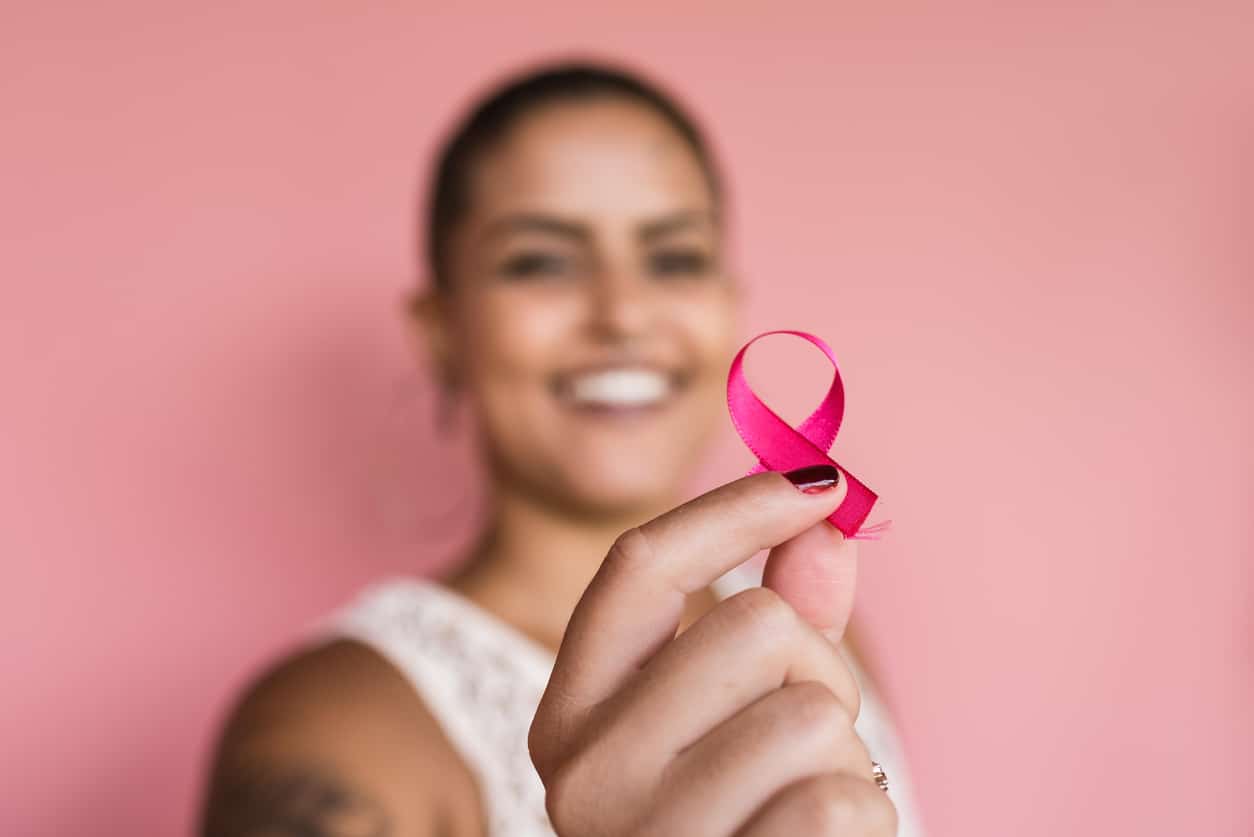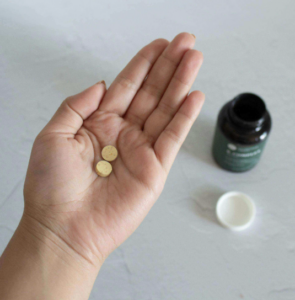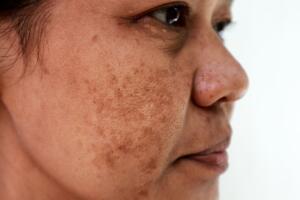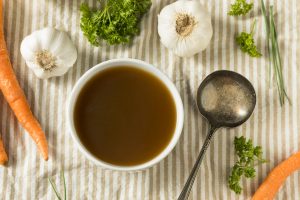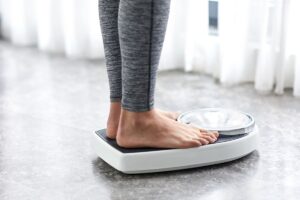Two words can bring a woman’s world to a screeching halt: breast cancer.
According to the American Cancer Society, “breast cancer is the most common cancer in women in the United States, except for skin cancers. It accounts for about 30% (or 1 in 3) of all new female cancers each year.” They also state that over 42,000 women will die from breast cancer in 2024.
The good news, as reported by the American Cancer Society, is that breast cancer death rates have decreased steadily since 1989. That decrease is due to discovering breast cancer earlier through screening, increased awareness, and healthy habits.
There are breast cancer risk factors we cannot control, such as family history, genetics, age, gender, heritage, race, and breast density, to name a few. However, we are in control of other factors to decrease the risk of breast cancer.
Since October is Breast Cancer Awareness Month, let’s look at what we can do to decrease our risk of breast cancer.
The Importance of Screening
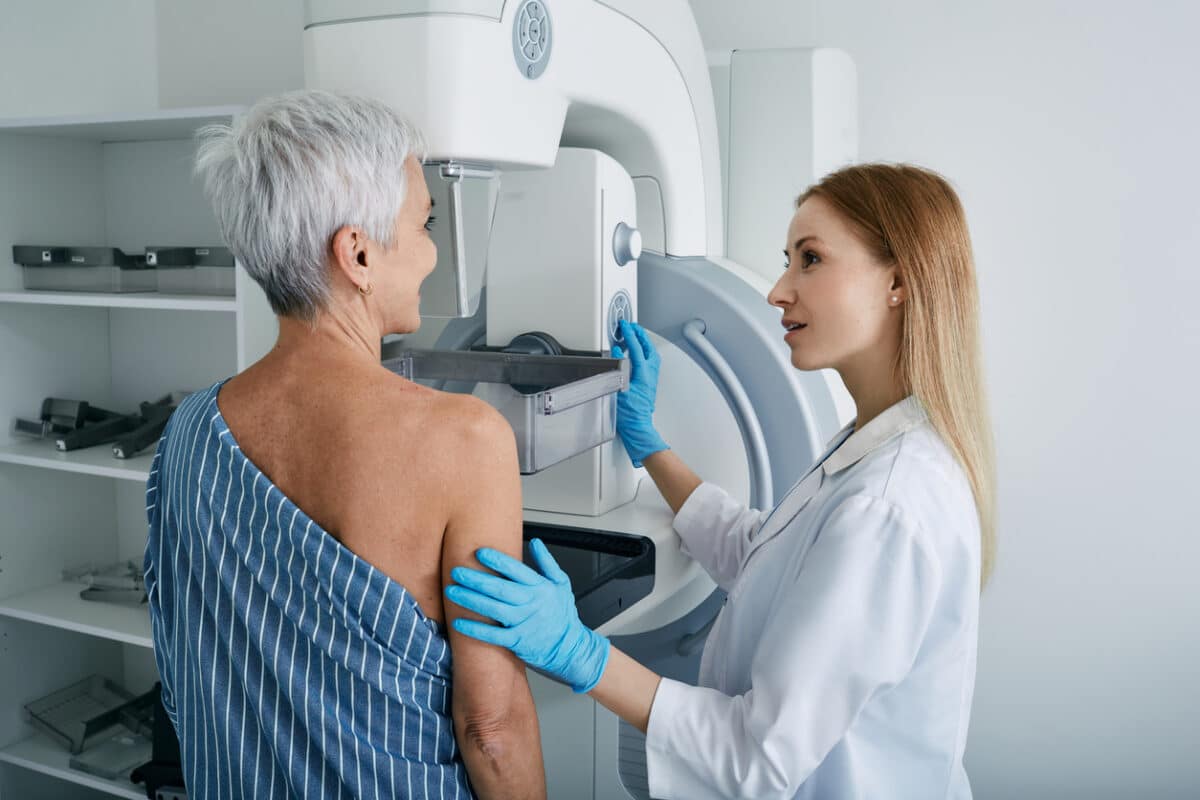
According to Breastcancer.org, “The American Medical Association, the American College of Obstetricians and Gynecologists, the Society of Breast Imaging, the American Society of Breast Surgeons, the American Cancer Society, and the National Comprehensive Cancer Network have all issued guidelines saying that all women should be eligible for screening mammograms starting at age 40.”
In addition to screening mammograms, women need to be proactive. Be aware of the signs and symptoms of breast cancer and report any changes to your doctor right away. Breast self-examination, breast self-awareness, and clinical breast examination are essential steps in recognizing what’s normal for you. After all, we know our bodies better than anyone else, right?
Lifestyle: Healthy Habits
According to Susan G. Komen, “healthy lifestyle choices are linked to a lower risk of some cancers and other health conditions such as heart disease, diabetes and osteoporosis.”
Living Beyond Breast Cancer Community (LBBC)
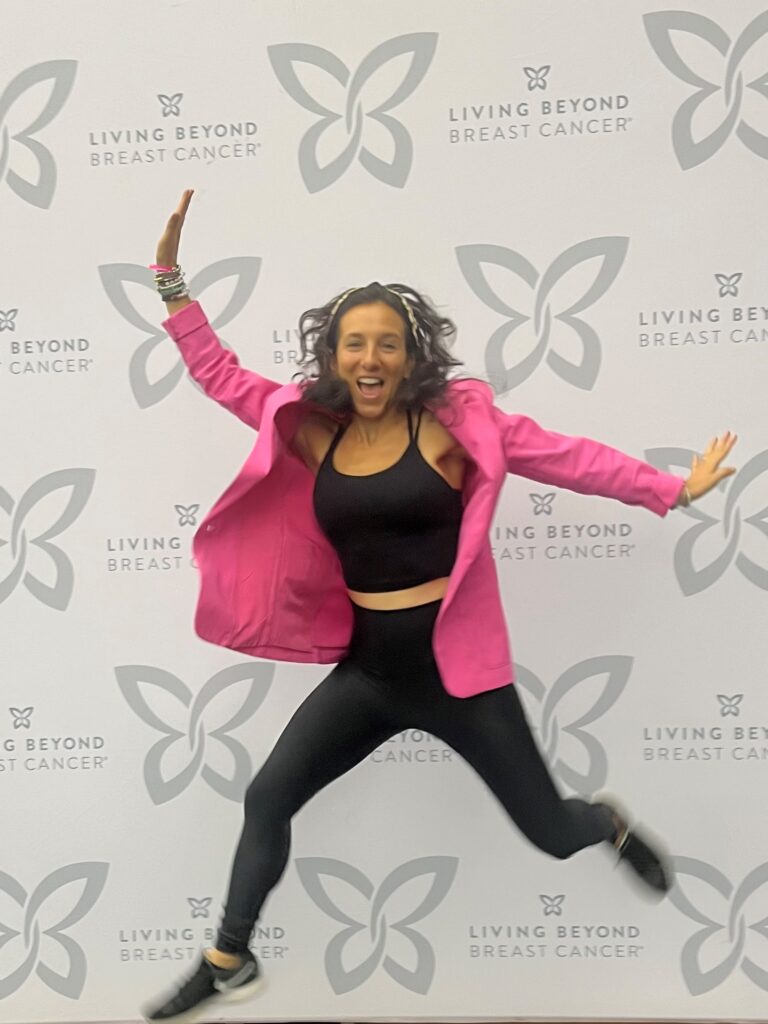
A good healthy living resource is the Living Beyond Breast Cancer Community (LBBC), a large medical advisory board with nutritionists, doctors, researchers, and social workers who all can connect on healthy living while living with breast cancer as well as ways to reduce breast cancer risk.
LBBC connected us to one of their patient advocates, Abby Match, who is also a breast cancer survivor. She started living a healthier life after her cancer diagnosis at age 35 through functional medicine, a plant-based diet, and meditation.
“Since I was so young with a breast cancer diagnosis,” recalls Match, “doctors sent me to genetics, suspicious that I was a carrier of the BRCA1 mutation since I am of Ashkenazi Jewish descent, young, and had a TNBC diagnosis. Their suspicion was correct. The diagnosis and genetic mutation shook me to my core. I’d had health issues all my life, so I decided in this moment that I wasn’t just going to live, but I was going to live my best and healthiest life once and for all.”
Due to her aggressive breast cancer, chemotherapy, radiation, and surgery were crucial for her diagnosis. She was declared cancer-free in December 2020 during her double mastectomy and lymph node removal surgery, followed by radiation.
However, before that moment and for her future self, Match researched functional medicine and dug deeper into how she landed here. She wanted control back. She knew that after all the treatment and surgeries were over, she’d need to face this alone, and she needed the tools to do that.
1. Maintain a healthy weight.
Being overweight or obese increases your risk of breast cancer. Aim to maintain a body mass index (BMI) between 18.5 and 24.9. If you need help getting to or maintaining a healthy weight, talk to your doctor about how to lose weight safely.
2. Be Physically Active.
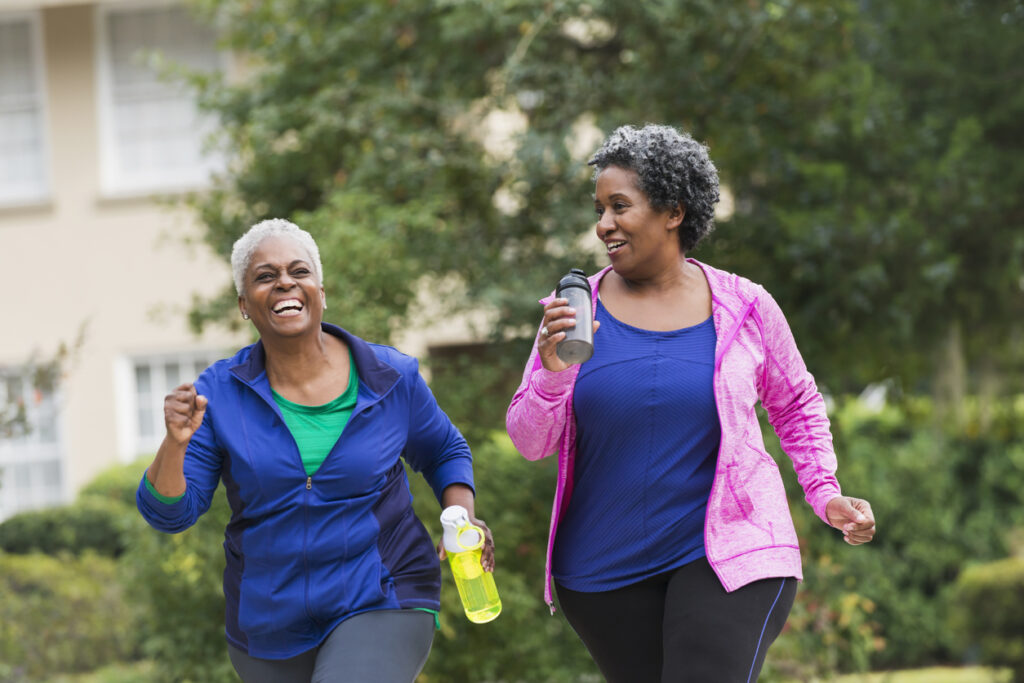
The American Cancer Society recommends a goal of at least 150 minutes of moderate-intensity aerobic activity or 75 minutes of vigorous-intensity aerobic activity spread throughout the week—150 minutes is just over 21 minutes per day.
Ultimately, to achieve the best health, one should reach or exceed the upper limit of 300 minutes—that’s under 45 minutes per day.
If that feels too overwhelming or too much now, consider breaking up your activity into shorter periods of time throughout the day.
Match began her journey to health by journaling, meditation, food movement, and supplements as her new treatment and lifestyle. She strived to be better, not perfect, and began baby steps toward a healthier self, like walking her dogs first thing in the morning, basking in the sunshine to get vitamin D, and taking deep breaths while she thought of three things to be grateful for each day.
3. Eat a Healthy Diet.
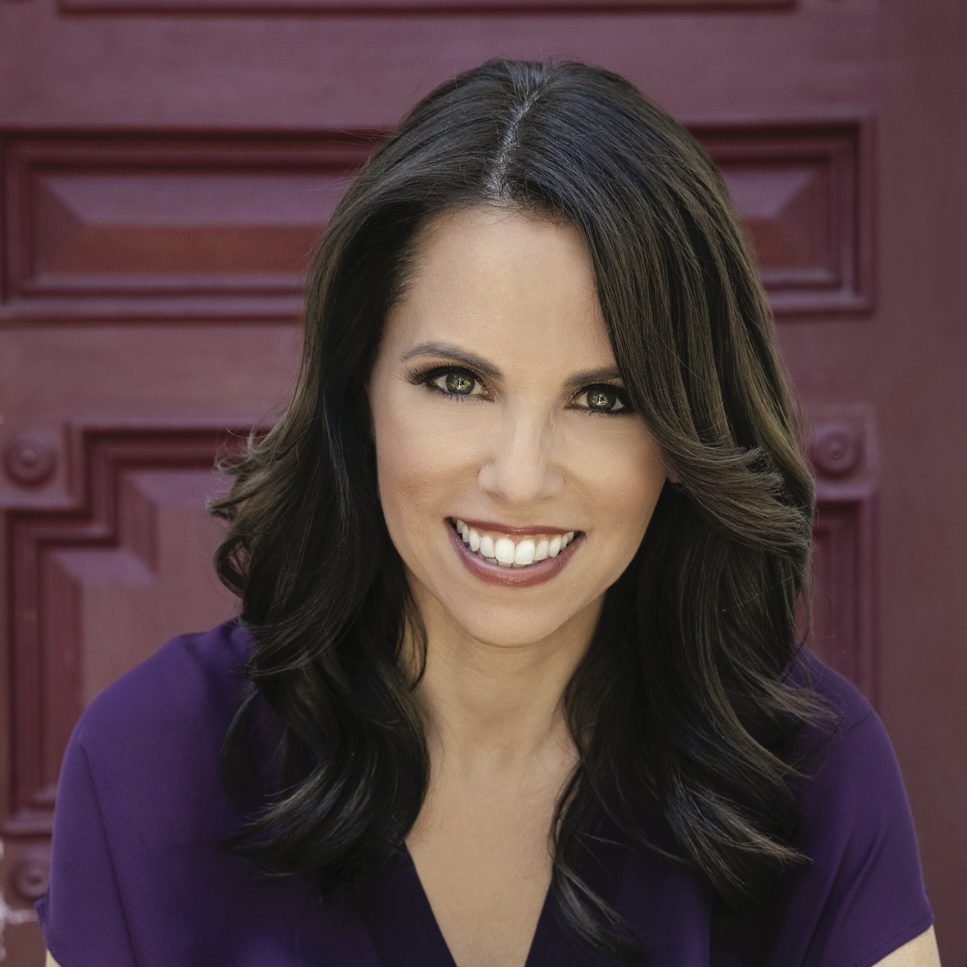
Eat a variety of fruits, vegetables, and whole grains. Limit your intake of processed meats, red meat, sugary drinks, and unhealthy fats.
Unsure what that might look like? Think colors. Choose fruits in a variety of colors. Vegetables that are dark, green, red, and orange, fiber-rich beans, and peas (legumes). Whole grains are also good choices.
Avoid red and processed meats, sugar-sweetened beverages, bye-bye non-diet soft drinks/sodas, sweetened coffee, and tea. Read the labels: no “highly processed” foods or “refined” grain products.
When Match changed her diet, eating plant-based foods and only food with natural sugars, “my skin is in the best shape it has ever been. And my husband almost never hears me complain about my stomach. It’s a win-win!!”
Rachel Beller, MS, RDN, CEO and founder of the Beller Nutritional Institute, is a celebrity nutritionist specializing in weight management and breast cancer prevention. She is also an active resource for the Living Beyond Breast Cancer Community (LBBCC) to live healthier, nutrition-forward lives, regardless of diagnosis.
Beller says, “Emerging research strongly suggests a strong correlation to what we eat decreasing the risk of breast cancer and recurrence. My book, Spice Rack, offers an action plan with recipes to reduce breast cancer risk and manage your weight. Power spicing is a big part of this plan.”
She also recommends that women consume 30-35 grams of fiber daily, a key supplement for reducing breast cancer. Fiber supports gut health and weight management, helps control blood sugar, removes excess estrogen, and supports immune function.
“I’m not talking about supplements,” Beller says. “I’m encouraging whole-based fiber boosters, such as basil seeds, chia seeds, and ground black seeds. Get a jumpstart in the morning with 10 grams before noon. In addition, select premium proteins, plant-based proteins, such as edamame, chickpeas, and lentils, all rich in protein and fiber.”
“You can also start small by introducing a more plant-centered diet, according to Samantha Harris, Breast Cancer Thriver (cancer-free since 2014), mother of two, award-winning Emmy TV Host, and Certified Health Coach and trainer. “Start small. Instead of meat front and center each meal, add a meatless Monday to your weekly menu.”
For more tips on healthy living, Hard Rock Hotels teamed up with Harris to share special content featuring tips from Samantha’s “Your Healthiest Healthy” book and online courses.
Hard Rock Hotels teamed up with Samantha Harris, Emmy-winning TV host, bestselling author, certified health coach & trainer, and breast cancer thriver, to share special content featuring tips from Samantha’s Your Healthiest Healthy book and online courses.
4. Quality of Sleep
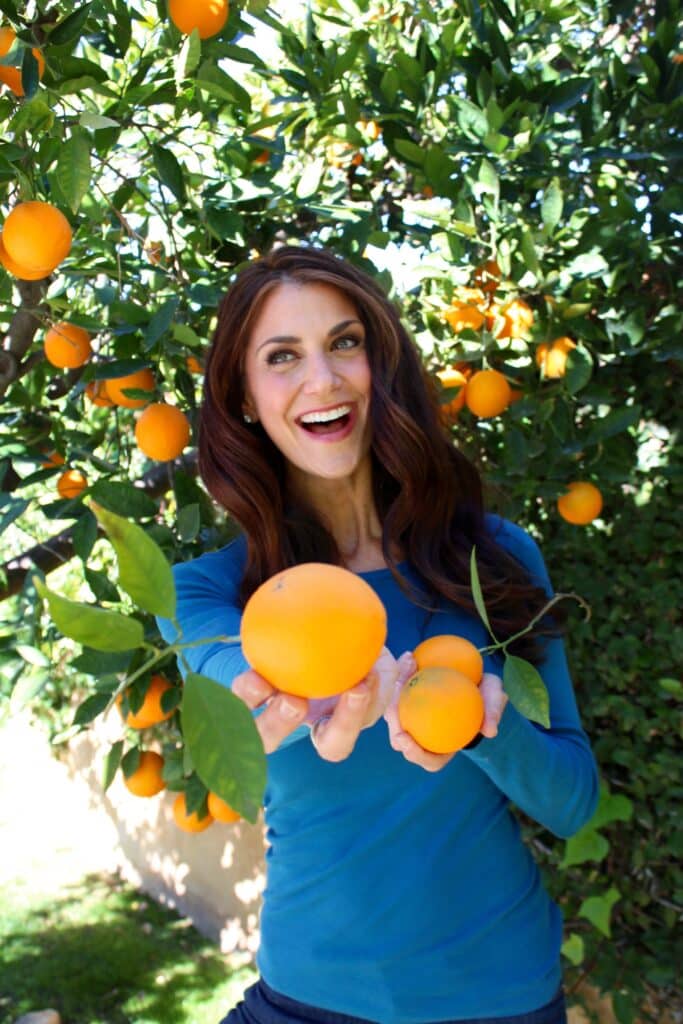
According to NIH News in Health: “Sleep is as important for good health as diet and exercise. Good sleep improves your brain performance, mood, and health. Not getting enough quality sleep regularly raises the risk of many diseases and disorders.”
“Sleep quality as we get older,” says Harris, “is challenging, to say the least. Night sweats. Perimenopause. Work. Life. Creating a sleep routine that leads up to bed is the key to a good night’s sleep. We did that for our children to help them wind down and fall asleep, right? Our lead-up-to-bedtime routine should be chosen just as consciously. Establish a regular sleep-wake routine to guide your body toward a restful, sleep-pro routine.”
Some of her suggestions for a sleep routine include:
- Shower/bath
- Journal
- Dim lights before bedtime
- Wear blue light glasses if on screen.
- Create a sanctuary in your bedroom, such as black-out shades with white noise.
- The optimal sleeping temperature is 62-68 degrees.
Also, if you wake up in the night, do not look at your phone as it will change your rhythm and get your mind going. If you have thoughts in your mind, have a pen and paper by your bed and jot them down.
If, like Harris, you travel often for work, finding the perfect sleep zone while on the road isn’t easy. Part of her collaboration with Hard Rock Hotels includes in-room viewing on hardrock.com/PINKTOBER. Every Wednesday on Hard Rock’s Instagram, Harris will also provide advice on sleep, nutrition, and workouts to help breast cancer survivors, thrivers, and others feel their best.
5. Don’t Smoke.
Smoking increases your risk of breast cancer and many other types of cancer. If you smoke, talk to your doctor about quitting.
6. Limit Alcohol Intake.
Alcohol increases your risk of breast cancer. If you drink alcohol, do so in moderation. The American Cancer Society also adds that those “who do choose to drink alcohol should have no more than 1 drink per day for women or 2 drinks per day for men.”
In addition, read the ingredients on the wine labels. Choose wines with low or no sugar, low calories, and fewer additives.
7. Talk to Your Doctor About Other Risk Factors.
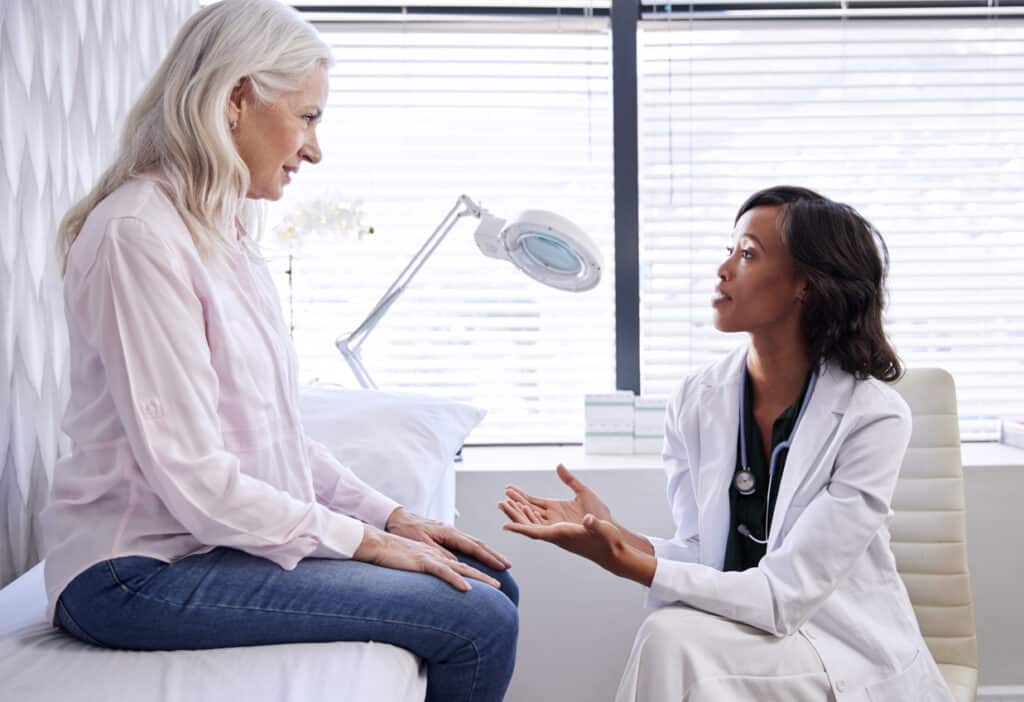
There are other risk factors for breast cancer that you cannot control, such as your family history and age. Talk to your doctor about your risk factors and how to reduce your risk.
According to Jean Sachs, MSS, MSLP, Chief Executive Officer of LBBC.org (Living Beyond Breast Cancer), “First thing to note is that everyone might say ‘I don’t have a family history of breast cancer,’ and often think that doesn’t change their risk, but unfortunately, less than 8% have a family history. The sad truth is we don’t have a way to prevent breast cancer, even if you do all the right things and maintain a healthy lifestyle.”
Her best advice is, “Know your body. If you think something is not right, talk to your doctor – and the earlier, the better.”
It is important to note that there is no guaranteed way to prevent breast cancer. However, by following the healthy habits listed above, you can reduce your risk of developing breast cancer.
Read Next:
Breast Cancer Myth Busters | A Quick Guide
Braving Breast Cancer: Tales of Tenacity, Humor, and Healing

